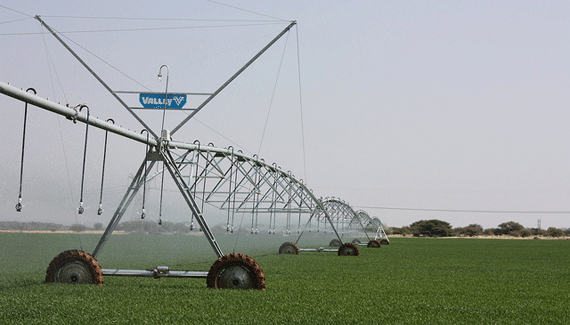
THE success of the Tshongokwe Irrigation Scheme in Jotsholo that has become the beacon of irrigation farming in the Matabeleland region, is an apt demonstration that all is not lost in the country’s agriculture sector.
A number of irrigation schemes across Matabeleland, Masvingo and the Midlands have become derelict because of neglect by the government and failure by farmers to run them on a commercial basis.
The collapse of irrigation farming is happening at a time when the number of people unable to feed themselves is increasing in Zimbabwe. According to latest government figures, 2,2 million people would need urgent food aid by the next harvest in March 2014.
This is largely because of a poor 2012-2013 rainy season and the virtual collapse of irrigation farming in Zimbabwe.
Irrigation at schemes built soon after independence and at commercial farms have virtually collapsed as a result of the haphazard land reform programme and economic problems of the last decade.
However, Tshongokwe in dry Matabeleland North has remained an oasis in a desert. For its consistency, the scheme won the right to host this year’s World Food Day commemorations held last Wednesday.
Tshongokwe brushed aside competition from other irrigation schemes countrywide. Established in 1966 with 16 people as members, the scheme now has 61 farmers.
It has won a number of accolades, including the third prize for the best-run scheme in the country in 1993 and was voted the best-run irrigation project in the country in 2000.
- Chamisa under fire over US$120K donation
- Mavhunga puts DeMbare into Chibuku quarterfinals
- Pension funds bet on Cabora Bassa oilfields
- Councils defy govt fire tender directive
Keep Reading
In 2001, Tshongokwe Irrigation Scheme was selected to host the World Food Day commemorations and repeated the same feat this year.
The scheme rotates crops like maize, vegetable, carrots, onions and garlic, among others.
Selection of Tshongokwe to host the commemorations should give encouragement to other farmers in dry parts of the country that they don’t have to wait for rains to be productive.
The government should also be alive to climate change dynamics and stop the habit of only waking up to support farmers towards the start of the rainy season, but make the financial assistance available all year round.
A deliberate programme has to be put in place to revive irrigation schemes throughout the country because they are the future of the agriculture industry.










